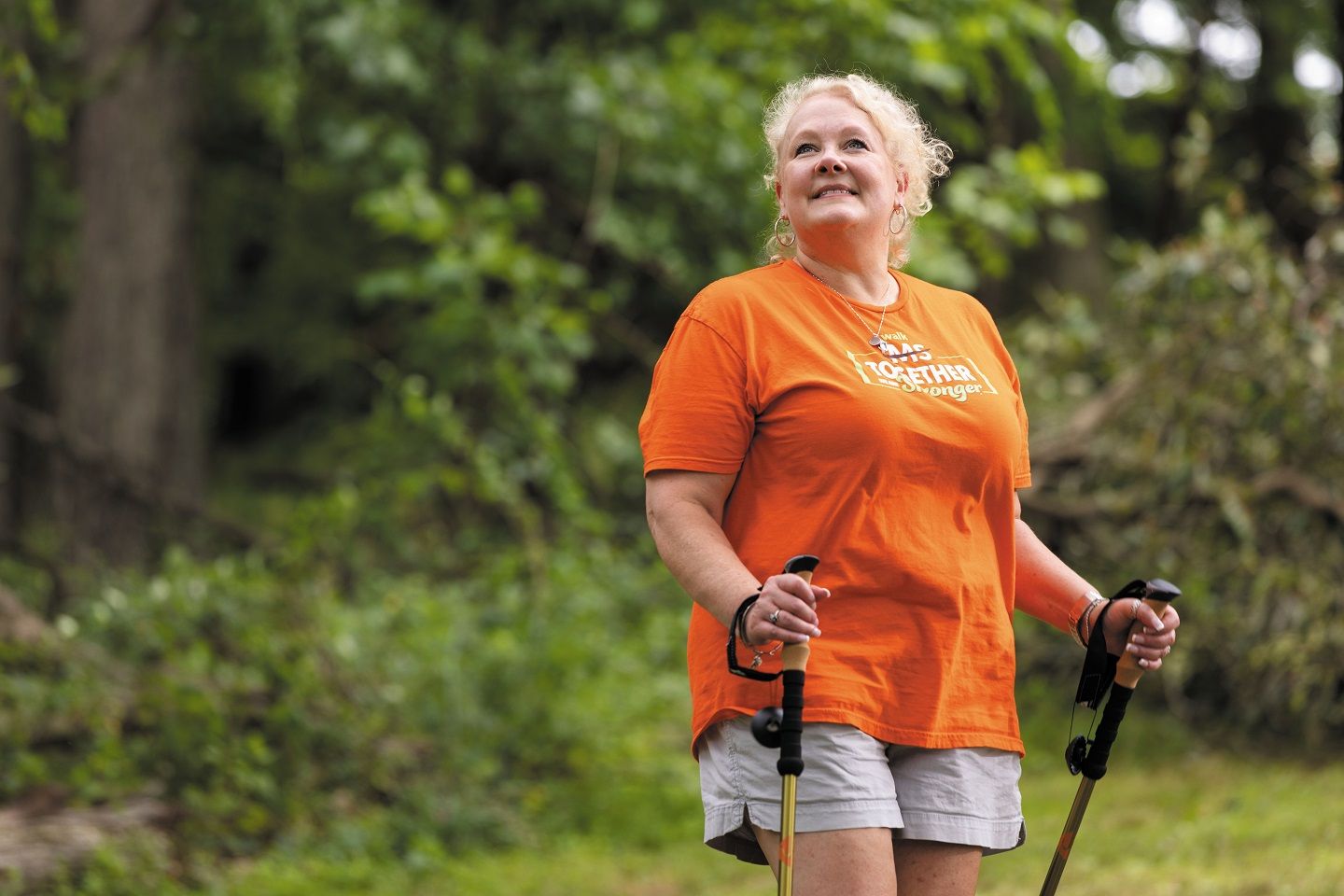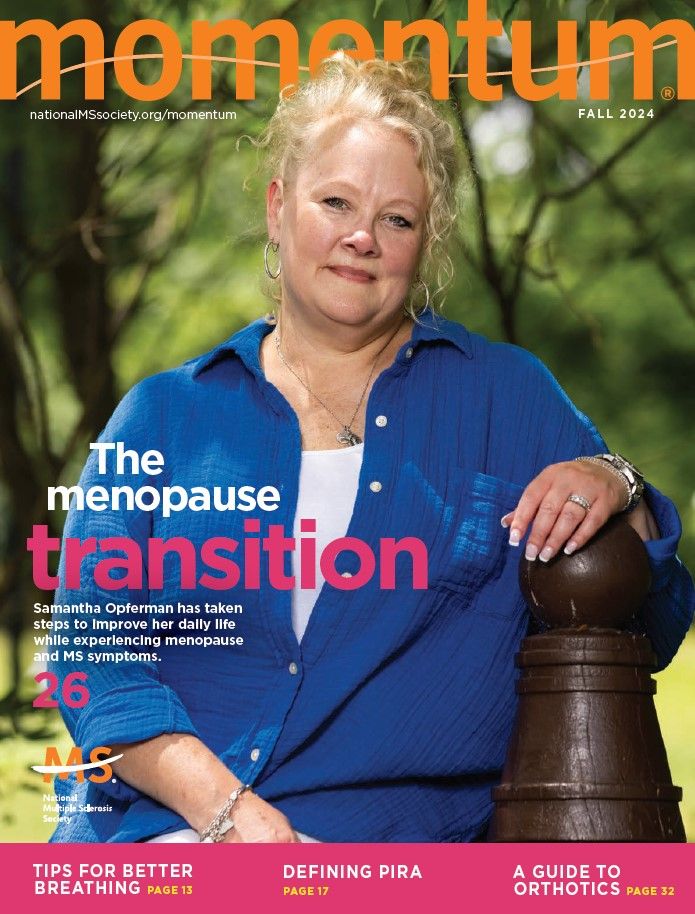Menopause and MS: Managing the Transition
Here’s what to know about this new stage of life and how it affects your MS.

What the Research Shows
How Menopause Affects MS
Menopause symptoms can exacerbate MS symptoms. Take hot flashes, for example, one of the most common symptoms of menopause. “Hot flashes wreak havoc on sleep, which affects daytime cognition, mood and energy, and that can throw someone with MS into a tailspin,” Bove says. “Also, you have overlapping symptoms — maybe mood wasn’t great to begin with, then there are effects on sleep, libido and bladder. It’s a domino effect.”That was the story for Samantha Opferman, 55, of Pittsburgh, Pennsylvania. “The night sweats and insomnia prevented me from getting good rest at night,” says Opferman, who was diagnosed with MS in 2011. “Being a full-time professional with a family and career and trying to get up for work, it just magnified that fogginess and fatigue I would normally get with MS.”While there’s not enough evidence at this point to conclude that menopause also worsens the course of MS, Bove’s own study, published in 2014 in Multiple Sclerosis Journal, suggests it can.“We are finding an association with gray matter volume, MS functional abilities and biomarkers,” she says. “Those seem to worsen a bit after the menopause transition and occur independent of chronological aging.”It’s true that natural declines associated with aging can also affect people with MS more profoundly, because their systems are already less resilient.“If you think of a young brain and its ability to recover from assault, what’s known as neuroplasticity, it’s much better than an older brain because with age, we do have some loss of neurons and cerebral atrophy,” explains Brigham and Women’s Hospital neurologist Maria Houtchens, MD, associate professor of neurology at Harvard Medical School. “On top of that process, if you add MS-related concerns to the naturally occurring aging process — inflammation, loss of neuronal [nerve cell] and axonal activity and connectivity — the brain is even less able to recover as quickly or as fully.”Another age-related factor is the natural decline in the store of eggs in the ovaries, called ovarian reserve. Bove cites a study that followed women with MS for 10 years and observed a connection between their levels of anti-Mullerian hormone (AMH), a hormone that is a marker of the ovarian reserve, and loss of brain volume. Although this process affects all people going through menopause, those with MS may be more impacted.

Effects on Cognitive and Emotional Health
How to Manage Menopausal Symptoms in MS
Treatment Considerations
Advice for People with MS Approaching Menopause
The first step is to acknowledge that you may see an effect on your symptoms overall. “You’re going through a phase that’s already difficult from one system’s standpoint and adding another layer of difficulty to your quality of life,” Okai says.She urges people with MS to seek treatment as needed. “Symptoms of menopause can be treated and this, in turn, can lead to improvement of those MS symptoms that became more prominent,” she says. “Working with your neurologist and gynecologist to address these symptoms can lead to an improvement in quality of life.”She recommends working with a neurologist, gynecologist and primary care physician for a comprehensive approach to management.And since people with MS are living longer now, it’s important to set yourself up for healthy aging. “Do all the wellness things and all the menopause management things,” Bove says, which means doing everything from exercising regularly to getting your shingles vaccine.“There’s a need for more aggressive and focused care but also a window in which you can really think about the next phase of life,” Bove says. “The message is: There’s a lot we can do to improve current function during the menopause transition and also to promote brain wellness and healthy aging for decades to come.”Rivers urges people with MS to self-advocate. “It was hard to get more than a shrug when I asked my MS care team about going on hormone therapy to control my symptoms,” she says. “My neurologist said, ‘I’m not up to date on this. Why don’t I refer you to an MS Center that specializes in women’s health?’” From there, Rivers was referred to a complementary and alternative medicine (CAM) practitioner and eventually had to pay out of pocket for a telehealth visit with a certified menopause practitioner before ultimately getting prescribed HRT. “It was worth doing all the legwork to be able to come to this decision and finally find some relief.”










